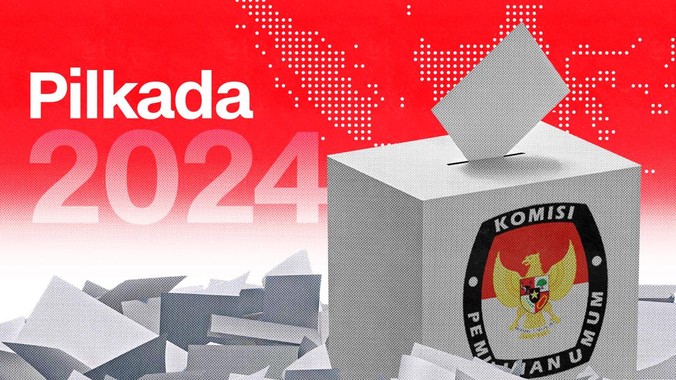Post-2024 Pilkada Reconciliation Creates Community Conduciveness
By: Shenna Aprilya Zahra )*
The implementation of the 2024 Pilkada voting has been completed, leaving behind various political dynamics that need to be addressed together. However, the reconciliation steps taken by various elements of the nation are a sign that Indonesian democracy remains on the right track. People from various levels are now starting to knit together and create a more conducive atmosphere after the democratic party.
The Executive Director of Akar Rumput Strategic Consulting (ARSC), Dimas Oky Nugroho, assessed that the efforts to re-embrace each other between political parties and the community after the Regional Head Elections were a reflection of the importance of democratic values based on mutual cooperation.
The reconciliation is considered a vital step to create a more advanced and prosperous Indonesia, especially amidst the diversity of society. With reconciliation, the potential for conflict due to polarization can be minimized, allowing differences in political views to be processed into strength to jointly build the country.
The momentum of reconciliation after the 2024 Simultaneous Regional Elections, according to Dimas, is very relevant to the philosophy of Indonesian democracy which prioritizes deliberation for consensus. This togetherness is not only an important element in maintaining political stability, but also facilitates the process of changing leadership at the regional level. The leaders who are elected are expected to be able to carry out the people’s mandate optimally, without having to be burdened with sharp polarization issues.
Public policy observer, Nurdin I. Muhammad, also emphasized the importance of reconciliation in order to create social harmony and stability after the regional political contestation.
He assessed that the main challenge that emerged was the rampant SARA issues and the spread of hoaxes during the Pilkada. This phenomenon, if left unchecked, could damage social harmony. Therefore, the step to re-embrace all elements of the nation is a concrete solution in restoring trust and intimacy in society.
Nurdin emphasized that the 2024 Pilkada should be a momentum to promote the values of harmony, justice, and diversity. The local democracy process every five years has great potential to bring prosperity, as long as all parties can make differences a shared strength.
With a conducive atmosphere, it is hoped that the government that is formed will be able to accommodate all the interests of the people without exception, so that justice and prosperity can be felt evenly.
In the view of the Chairman of the Indonesian Youth Caucus (KMI), Edi Homaidi, a conducive atmosphere after the 2024 Simultaneous Regional Elections is an important key in maintaining national stability. He highlighted that social conflicts often arise due to differences in political choices, which if not managed properly, can threaten the country’s economic and political stability. Edi also reminded that those who lose in this local political contest must be generous, in order to maintain harmony in society.
Furthermore, Edi saw that the conducive atmosphere provided a solid foundation to ensure that the results of the Pilkada truly reflected the aspirations of the people. In addition, the stability created would also encourage regional progress, because the development process could run smoothly without any disruption due to political disputes. Thus, post-Pilkada reconciliation is a strategic step to prevent economic decline while strengthening a sense of unity.
Post-2024 Pilkada reconciliation also has a direct impact on strengthening democracy in Indonesia. When society is able to reduce differences and work together for a greater goal, democracy can develop more healthily. A mindset that prioritizes common sense in politics will make this election an instrument to strengthen harmony, not the other way around.
In addition, the community can use this reconciliation momentum to strengthen the bonds of brotherhood that had been strained due to polarization. The tension that emerged during the Pilkada process often caused divisions among families, communities, and the wider community. By creating a conducive atmosphere, relationships that had been cracked can be repaired, creating a more harmonious and inclusive social environment.
The reconciliation steps taken by political leaders, community figures, and various other organizations now prove that closeness can be re-established after sharp differences during political contestation.
The post-election moment reflects the maturity of Indonesian democracy, which does not only focus on the final result but also the process of rebuilding harmony within society.
With political stability that continues to be maintained, Indonesia has a great opportunity to continue development in various sectors. In addition, reconciliation also opens up space for the community to refocus on efforts to improve welfare and quality of life, without being disturbed by prolonged political dynamics. The local political contestation event every five years should indeed be a means to strengthen national unity.
The moment of reconciliation after the 2024 Pilkada also provides a valuable lesson for the community about the importance of healthy democracy. Every individual is invited to respect differences, avoid provocation, and prioritize common interests over personal or group interests. These values not only strengthen harmony but also instill a sense of collective responsibility to maintain the integrity of the nation.
Post-2024 Pilkada reconciliation is a reflection of Indonesia’s success in managing democracy amidst diversity. With this step, the community is not only invited to unite but also to work together to realize a brighter future for the nation.
The re-established familiarity becomes a very valuable social capital, which will continue to strengthen Indonesian democracy as an inclusive and just mutual cooperation democracy.
)* The author is a contributor to the Nusantara Reading Room
